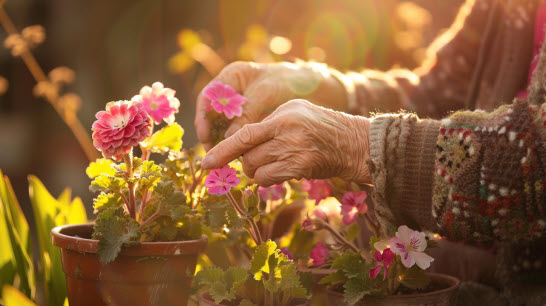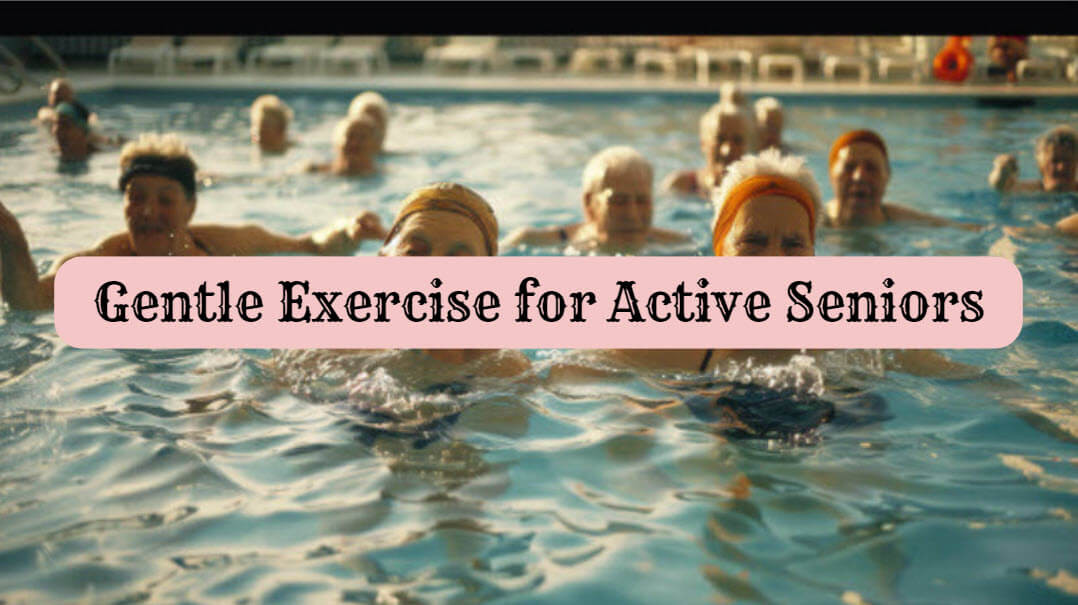If you would prefer to listen to a summary of this article, play the audio:
Why do Gentle Exercise?
Let’s face it, folks – things change as we get older. Our bodies might not be as sprightly as they once were, and the thought of high-impact exercise might make us wince a little. But here’s the good news: staying active and incorporating gentle exercise into your routine is more important than ever as we age. It’s not just about staying limber and keeping those aches and pains at bay; it’s about boosting your overall health and well-being in a big way.
Table of Contents
Why Exercise Matters for Older Adults:
Think exercise is just for youngsters to pump iron and chase after dreams? Think again! Staying active as you get older comes with a treasure trove of benefits:
- Keeps you strong and independent: Exercise helps maintain muscle mass and bone strength, which reduces your risk of falls and injuries. This translates to greater independence and confidence in your daily life.
- Improves balance and coordination: Regular exercise helps you stay steady on your feet, reducing the risk of falls and keeping you active and mobile for longer.
- Boosts brainpower: Studies show that exercise can improve cognitive function, and memory, and even reduce your risk of dementia. It’s like a workout for your brain!
- Lifts your mood: Exercise is a natural mood booster. It releases endorphins, those feel-good chemicals that combat stress and anxiety, and keeps you feeling positive and energized.
- Helps manage chronic conditions: Regular physical activity can help manage conditions like diabetes, heart disease, and arthritis, keeping you healthy and in control of your well-being.

Gentle Exercise Options for Active Seniors:
Now, let’s get down to the fun part – moving your body in ways you’ll enjoy! Here are some gentle exercise options that are perfect for older adults:
- Walking: It’s simple, accessible, and free! Take a stroll around the park, explore your neighborhood, or join a walking group for some social interaction.
- Swimming: This low-impact activity is easy on your joints yet provides a full-body workout. Join a water aerobics class for added fun and variety.
- Tai Chi: This mind-body practice combines slow, graceful movements with deep breathing exercises. It promotes balance, coordination, and mindfulness, leaving you feeling calm and centered.
- Yoga: Gentle yoga poses improve flexibility, balance, and strength, all while promoting relaxation and stress reduction. Consider attending a chair yoga class specifically designed for older adults.
- Dancing: Put on your favorite tunes and move to the rhythm! Dancing is a fun, social way to get your heart rate up and improve your mood.
- Gardening: Digging, planting, and tending to your garden is a fantastic way to stay active while enjoying the outdoors and reaping the rewards of your efforts.

Remember: Don’t forget to listen to your body. Start slowly, gradually increase the intensity and duration of your workouts as you get stronger, and always consult your doctor before starting any new exercise program.
Finding Your Exercise Groove:
Here are some additional tips to help you incorporate gentle exercise into your routine:
- Find an activity you enjoy: This is key to sticking with it in the long run. So, try different things and find what sparks your interest.
- Buddy up: Enlist a friend or family member to join you for your workouts. Having someone to exercise with can keep you motivated and add a social element to your routine.
- Set realistic goals: Start small and gradually increase your goals as you progress. Celebrating your achievements, no matter how small can keep you motivated.
- Make it a habit: Schedule your exercise time just like any other appointment and stick to it as much as possible.

FAQs:
Q: Are there any resources available for older adults who want to exercise in the UK?
A: Absolutely! Here are a few resources to get you started:
- Age UK: https://www.ageuk.org.uk/information-advice/health-wellbeing/exercise/simple-exercises-inactive-adults/
- NHS – Physical activity guidelines for older adults: https://costoflivingsupport.gov.im/media/1601/nhs_sitting_exercise.pdf
- The Silver Swans (Chair-based exercise classes): https://www.royalacademyofdance.org/rad-at-home/silver-swans-classes-online/
- Charity for Fitness: https://www.teenagecancertrust.org/get-involved/charity-challenges/charity-fitness-challenges
Q: I have specific health concerns. Should I talk to my doctor before starting any new exercise program?
A: Always consult your doctor before starting any new exercise program, especially if you have any underlying health conditions.

If you need any further information or assistance with this article, don’t hesitate to Contact Us




















